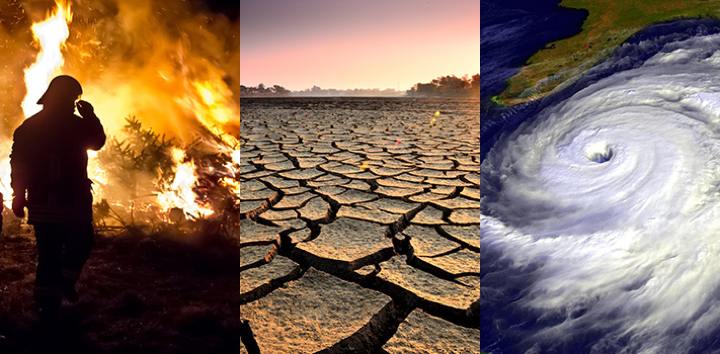There is no shortage of people who declare that climate change is real and if we do not act quickly and decisively, the world is headed for an irreversible disaster. On the other hand, it is not hard to find those who oppose this view, either sceptically (claiming that the evidence is inconclusive) or categorically (claiming that there is no evidence at all). Interestingly, those on both sides say they can find “experts” who support them. So what should we believe and, more importantly, what should we do?
Many people argue with statistics on the number of scientific papers on both sides. Of course, the qualifications and reputation of each scientist who presents evidence – and draws conclusions from that evidence – are extremely important in deciding how much attention he or she deserves. But even those are hard to determine. Usually one mainly considers their fame (e.g. David Suzuki or Tim Flannery). Furthermore, one’s opinion is often largely decided before any evidence or argument is examined, based on broader political and ideological beliefs.
So, is the solution for all of us to take university courses in climatology and not decide until we attain at least a doctoral level and are able to examine and understand the evidence by ourselves? Or, should we use basic critical reasoning skills, and any information and insights now available to us?
We must first describe the issue clearly and precisely. The question is not “Is the Earth’s climate really changing?” but “Does human activity make a noticeable and negative impact on the Earth’s climate?” If the climate were actually changing but it was just part of a great natural cycle, although it would be unfortunate, it wouldn’t be necessary to change our behaviour with regard to carbon emissions.
Pascal’s wager
Blaise Pascal, an 18th-century French philosopher, made an interesting contribution to the philosophical debate at that time about the existence of God. He looked, not the proofs, but at the consequences of believing, or not believing. Pascal presented four possibilities, based on whether or not God exists and whether or not one believes in God: If God existed but one did not believe, one would be punished with eternal damnation. If God existed and one did believe, one would be rewarded with eternal life in heaven. If one were to believe in “God” but no such being actually existed, one’s piety would be “wasted”, but on the other hand, there would be neither reward nor damnation after death. Finally, if one were an atheist and it turned out that one was right (ie, there is no God), one would simply have lived for oneself and death would be final, as expected.
So, along the same lines, let’s suppose that the truth of climate change could not be decided. This gives us the following four possibilities:
| Action | A. If human activity causes climate change | B. If human activity doesn’t cause climate change |
| 1. Do nothing | • Global disaster | • No change |
| 2. Do something (reduce CO2 emissions, etc.) |
• (Hopefully) disaster averted, or reduced | • Pollution reduced • Some unnecessary spending • Some unnecessary fear |
Incidentally, one big problem with Pascal’s original wager is that saying, “I now believe in God,” is not the same as a true belief in God. (One would assume that God would know the difference between the two!) However, no similar problem exists if the same general principle is applied to the issue of climate change.
So, even if one assumed that climatologists were more or less equally divided in their views, even if one assumed that the evidence were truly inconclusive (not just normal, scientific uncertainty), then the relative consequences would be massively unequal. The two negatives, indicated in cells A1 and B2 above, are: catastrophic on the one hand, and merely uncomfortable and inconvenient on the other. In my opinion, the choice is clear.
(Note: This is based on a post in my abandoned, but still live, blog, Some thoughts about…, from 2009. However, I believe it is as relevant as ever. Probably more so.)
